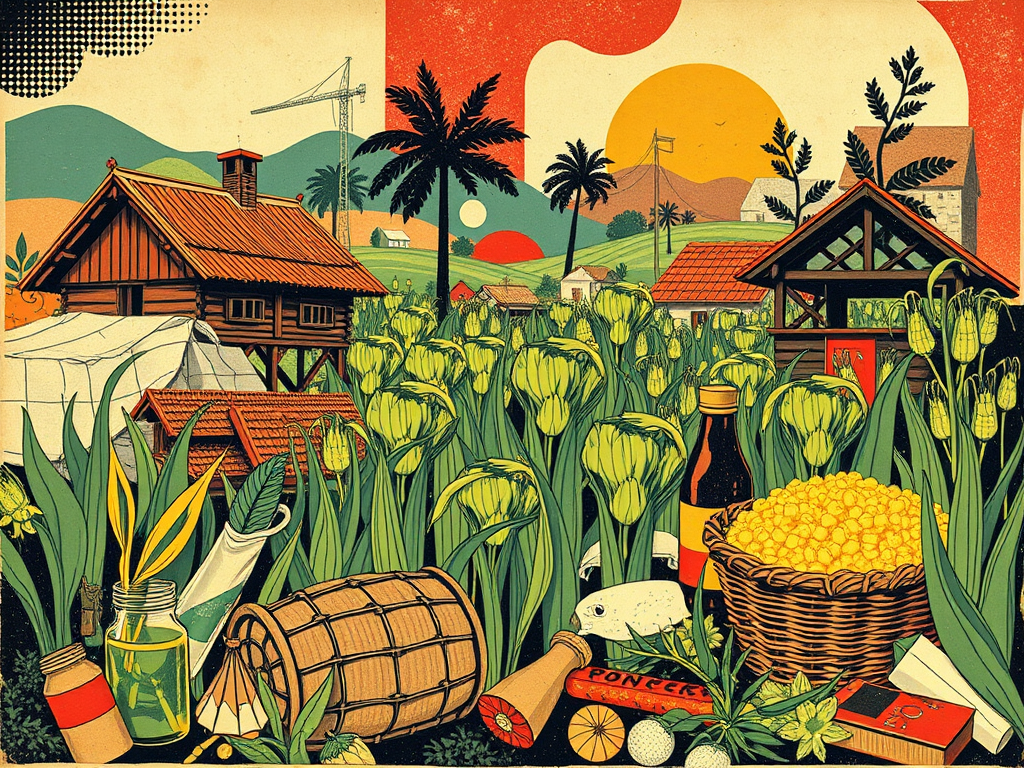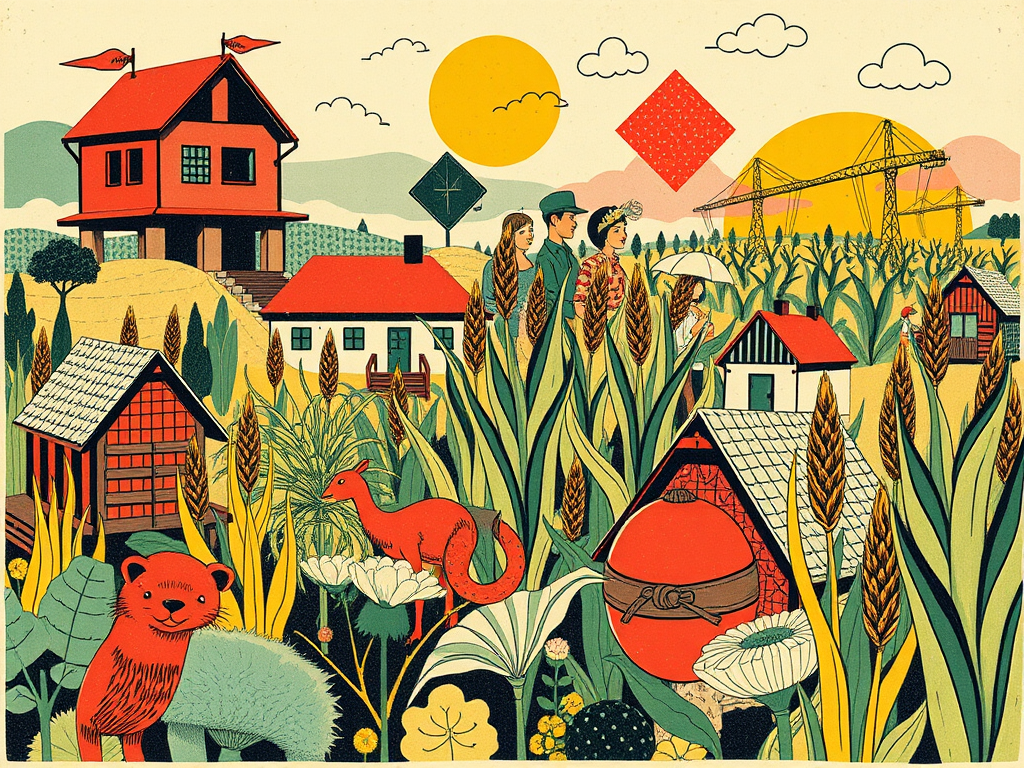Golden Visa via Agricultural Investments: Profitable Ventures in Greek Olive Groves and Vineyards

Golden Visa via Agricultural Investments: Profitable Ventures in Greek Olive Groves and Vineyards
Reading time: 15 minutes
Table of Contents
- Introduction
- Understanding the Greek Golden Visa Program
- Agricultural Investments in Greece
- Olive Grove Investments
- Vineyard Investments
- Financial Considerations and ROI
- Legal and Regulatory Framework
- Market Trends and Opportunities
- Challenges and Risks
- Success Stories and Case Studies
- Conclusion
- FAQs
Introduction
Greece, with its rich cultural heritage and stunning landscapes, has long been a coveted destination for investors and expatriates alike. In recent years, the country has introduced an innovative approach to attracting foreign investment through its Golden Visa program. This initiative offers a unique opportunity for non-EU citizens to obtain residency permits in exchange for significant investments in the Greek economy. While real estate has been the traditional focus of such programs, a new and intriguing avenue has emerged: agricultural investments, particularly in olive groves and vineyards.
This comprehensive analysis delves into the intricate world of agricultural investments within the framework of Greece’s Golden Visa program. We’ll explore how savvy investors can capitalize on the country’s renowned olive and wine industries while securing a path to residency in one of Europe’s most beautiful countries. From the sun-drenched hills of the Peloponnese to the fertile plains of Thessaly, we’ll uncover the potential that lies in Greece’s agricultural heartland.
Understanding the Greek Golden Visa Program
The Greek Golden Visa program, launched in 2013, is designed to attract foreign investment by offering residency permits to non-EU nationals who make significant investments in the country. Initially focused primarily on real estate investments, the program has evolved to include a wider range of investment options, including agricultural ventures.
Key Features of the Program
- Minimum investment threshold: €250,000
- Residency permit valid for 5 years, renewable indefinitely
- No minimum stay requirements
- Family members included (spouse, children under 21, parents)
- Pathway to citizenship after 7 years of residency
The inclusion of agricultural investments in the Golden Visa program represents a strategic move by the Greek government to revitalize its agricultural sector while attracting foreign capital. This approach not only diversifies the investment landscape but also taps into Greece’s rich agricultural heritage and potential.
Agricultural Investments in Greece
Greece’s agricultural sector has been a cornerstone of its economy for millennia. The country’s unique climate and diverse topography create ideal conditions for a variety of crops, with olives and grapes being particularly well-suited to the Mediterranean environment. For investors considering the Golden Visa program, agricultural investments offer a compelling alternative to traditional real estate options.
Why Invest in Greek Agriculture?
- Rich agricultural tradition and expertise
- Favorable climate for high-quality produce
- Strong global demand for Greek agricultural products
- Potential for both export and domestic market growth
- Opportunity to contribute to rural development and sustainability
Investors should note that agricultural investments under the Golden Visa program typically involve the purchase of land and existing agricultural operations or the development of new agricultural projects. These investments must meet specific criteria set by the Greek government to qualify for the visa program.
Olive Grove Investments
Olive cultivation has been an integral part of Greek culture and economy for thousands of years. The country is the world’s third-largest producer of olive oil, known for its exceptional quality and distinct flavors. For investors, olive groves present a unique opportunity to combine historical significance with modern agricultural practices.
Investment Potential in Olive Groves
- High global demand for Greek olive oil
- Long-term asset with potential for appreciation
- Opportunity for organic and premium product development
- Integration with agrotourism initiatives
- Potential for vertical integration (production to retail)
Regions such as the Peloponnese, Crete, and the Ionian Islands are particularly renowned for their olive production. Investors might consider properties in these areas, such as villas in kalamata, which could serve as both residential properties and gateways to olive grove investments.
Vineyard Investments
Greek wine has experienced a renaissance in recent years, with indigenous grape varieties and unique terroirs gaining recognition in the global wine market. Vineyard investments offer a blend of tradition and innovation, with potential for both domestic and international market growth.
Key Considerations for Vineyard Investments
- Growing international interest in Greek wines
- Opportunity to revive ancient grape varieties
- Potential for wine tourism and direct-to-consumer sales
- Integration with hospitality and culinary experiences
- Long-term asset with potential for brand development
Regions such as Nemea, Santorini, and Macedonia are known for their distinctive wines and offer attractive investment opportunities. Investors should consider factors such as soil quality, climate, and existing infrastructure when evaluating potential vineyard investments.
Financial Considerations and ROI
Agricultural investments under the Golden Visa program require careful financial planning and analysis. While the potential for returns can be significant, investors must be prepared for the unique challenges and timelines associated with agricultural ventures.
Factors Affecting ROI
- Initial investment costs (land acquisition, equipment, infrastructure)
- Operational expenses (labor, materials, maintenance)
- Yield projections and market prices
- Potential for value-added products and services
- Tax implications and incentives
It’s important to note that agricultural investments typically have longer payback periods compared to traditional real estate investments. However, they also offer potential for steady, long-term income streams and asset appreciation.
Legal and Regulatory Framework
Navigating the legal and regulatory landscape is crucial for successful agricultural investments under the Golden Visa program. Investors must be aware of both general investment regulations and specific agricultural policies.
Key Legal Considerations
- Land ownership restrictions for non-EU citizens
- Agricultural zoning and land use regulations
- Environmental protection requirements
- Labor laws and employment regulations
- Export and import regulations for agricultural products
Working with local legal experts and agricultural consultants is highly recommended to ensure compliance with all relevant laws and regulations.
Market Trends and Opportunities
The Greek agricultural sector is evolving, presenting new opportunities for innovative investors. Understanding current market trends is essential for making informed investment decisions.
Emerging Trends in Greek Agriculture
- Shift towards organic and sustainable farming practices
- Increasing demand for PDO (Protected Designation of Origin) products
- Growing interest in agrotourism and experiential agriculture
- Adoption of precision agriculture technologies
- Development of niche and specialty products
Investors who can align their strategies with these trends may find particularly lucrative opportunities in the Greek agricultural sector.
Challenges and Risks
While agricultural investments in Greece offer significant potential, they also come with unique challenges and risks that investors must carefully consider.
Potential Challenges
- Climate change and environmental risks
- Market volatility and price fluctuations
- Infrastructure limitations in rural areas
- Competition from established producers
- Navigating Greek bureaucracy and regulations
Mitigating these risks requires thorough due diligence, strategic planning, and often, partnerships with local experts and producers.
Success Stories and Case Studies
Examining success stories can provide valuable insights for prospective investors. Several Golden Visa recipients have successfully established thriving agricultural businesses in Greece.
Case Study: Olive Grove Revival in Kalamata
A Canadian investor purchased a neglected olive grove near Kalamata and implemented modern irrigation and harvesting techniques. Within three years, the grove’s yield increased by 40%, and the investor launched a premium organic olive oil brand that now exports to North America and Asia.
Case Study: Boutique Winery in Santorini
A Chinese entrepreneur invested in a small vineyard on Santorini, focusing on the indigenous Assyrtiko grape variety. By combining traditional winemaking methods with innovative marketing strategies, the winery has become a popular destination for wine tourists and has gained recognition in international wine competitions.
Conclusion
The Greek Golden Visa program’s expansion into agricultural investments offers a unique opportunity for foreign investors to combine residency benefits with profitable ventures in one of Europe’s most storied agricultural regions. Olive groves and vineyards represent not just financial investments, but gateways to a rich cultural heritage and a sustainable future.
While challenges exist, the potential rewards – both financial and lifestyle-related – are substantial. For investors willing to embrace the complexities of agricultural ventures, Greece’s olive groves and vineyards offer a path to residency, profitability, and a connection to the land that has nurtured civilizations for millennia.
As with any significant investment, thorough research, expert guidance, and a long-term perspective are essential. The combination of Greece’s Golden Visa program and its agricultural potential creates a unique synergy that savvy investors can leverage for both personal and financial growth.
FAQs
-
Q: How long does it take to see a return on investment in Greek olive groves or vineyards?
A: The timeline for ROI can vary significantly depending on factors such as the initial condition of the land, investment in infrastructure, and market conditions. Generally, investors should expect a 5-7 year horizon for significant returns, with steady income possible from year 3 or 4.
-
Q: Are there any restrictions on exporting agricultural products produced through Golden Visa investments?
A: There are no specific restrictions related to the Golden Visa program. However, all agricultural exports must comply with EU and Greek regulations, including quality standards, labeling requirements, and phytosanitary certifications.
-
Q: Can I combine agricultural investments with real estate purchases under the Golden Visa program?
A: Yes, investors can combine different types of investments to reach the €250,000 threshold. For example, you could purchase agricultural land and a residential property, as long as the total investment meets the program requirements.
-
Q: What support is available for foreign investors in Greek agriculture?
A: The Greek government offers various support mechanisms, including agricultural subsidies, tax incentives for certain types of investments, and advisory services. Additionally, organizations like Enterprise Greece provide guidance and support for foreign investors across various sectors, including agriculture.
-
Q: How does climate change impact agricultural investments in Greece?
A: Climate change poses challenges such as increased drought risk and changing pest patterns. However, it also creates opportunities for adaptive agriculture. Investors are increasingly focusing on drought-resistant varieties, water-efficient irrigation systems, and sustainable farming practices to mitigate climate-related risks.

Article reviewed by Michelle Hope, Real Estate and Investment Expert, on March 18, 2025




